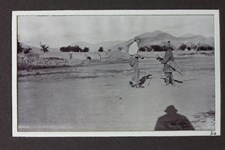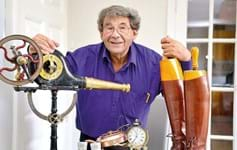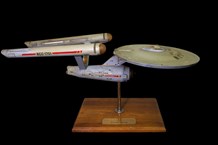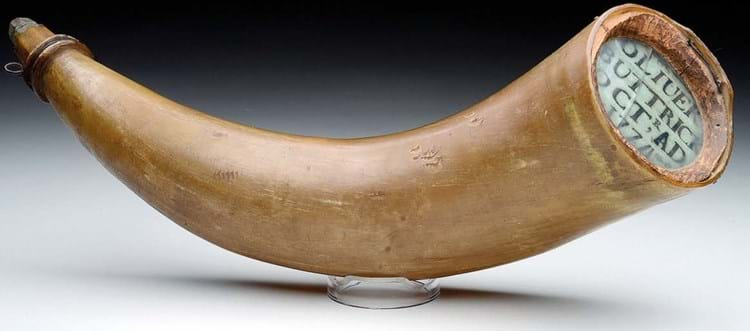
It was ‘the shot heard round the world’, as Ralph Waldo Emerson eloquently portrayed this momentous event in his Concord Hymn.
Concord was the first battle of the American War of Independence, on April 19, 1775, kicking off the conflict which led to a new nation.
Relics from that battle will be highly sought-after, as evident by a powder horn used by Minuteman Oliver Buttrick during the fight which is on offer from American dealership The 19th Century Rare Book and Photograph Shop, which has branches in New York City and Maryland.
The price tag is $165,000. The powder horn was actually sold at auction only in February 2016, when it made a premium-inclusive $88,875 at James D Julia of Fairfield, Maine.
The horn is signed and dated October 1774 and features a manuscript on vellum ownership label Oliver Buttrick, OCTR. AD 1774 under glass lens (inked vellum under a glass lens is a rare form of decoration seen on only a few other 18th-century powder horns).
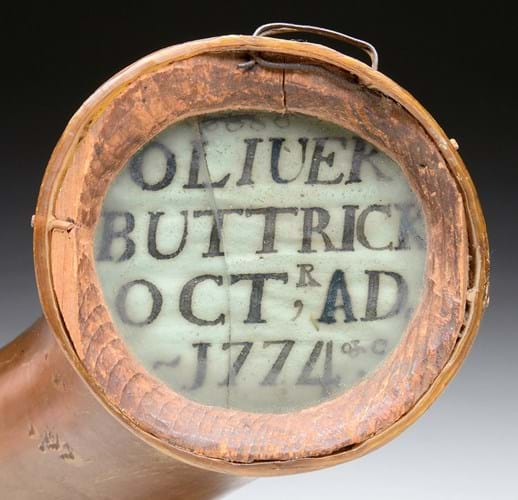
Minuteman Oliver Buttrick’s powder horn from the Battle of Concord in 1775 which is on offer from American dealership The 19th Century Rare Book and Photograph Shop.
Riding to the rescue
The British government in Boston learned early in April 1775 that rebel colonists had hidden arms and gunpowder in Concord. On the morning of April 19 an expedition of 700 British army regulars marched from Boston to Concord to seize and destroy these arms.
Paul Revere and other riders spread the alarm among local militias. When the British reached Lexington, the minuteman militia, not yet assembled in force, fell back. The British regulars then moved on to Concord, where a large contingent of minutemen was assembled.
A formidable force held the North Bridge in Concord defying the outnumbered British. The confrontation erupted into gunfire which became known as that ‘shot heard round the world’.
Family answers the call
Eighteen-year-old Oliver Buttrick was one of seven in the Buttrick family to join with other minutemen in the battle. Hiss uncle, Major John Buttrick, led the advance at the Old North Bridge that day. Oliver was in David Brown's Company and served alongside his brother William, who was killed three weeks later at Bunker Hill. Fellow minutemen that day included Abiel Buttrick, Daniel Buttrick, Tilly Buttrick, Willard Buttrick and John Buttrick, Jr, a 14-year old fifer.
The Buttrick family of Concord dates to William Buttrick's arrival from England in 1635.
As well as to answering the call to action at the Old North Bridge, Oliver Buttrick served extensively in the war, enlisting in the militia on June 6, 1776. He fought under the command of three of the men with whom he fought on April 19, 1775: Sgt. Abishai Brown, Capt. James Barrett and Capt. George Minot.
Buttrick fought in arenas such as Point Shirley, Bennington, Ticonderoga, Fishkills, and Soldiers Fortune (near West Point). He also served at Boston area forts and performed guard duty on a prison ship in Boston Harbour.
In 1834, at age 77, Buttrick filed for his Revolutionary War pension, declaring that when he officially entered into the service of his country he was 5ft 11in, age 21, and living in Concord. Corroborated by testimony from various parties, the pension application was approved in December 1834.


